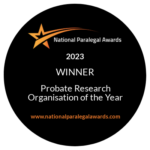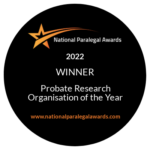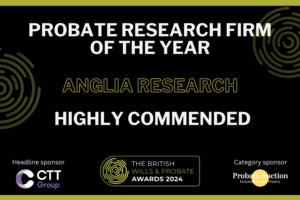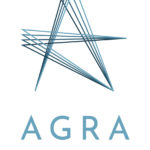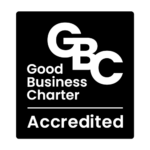The secret to instructing probate research
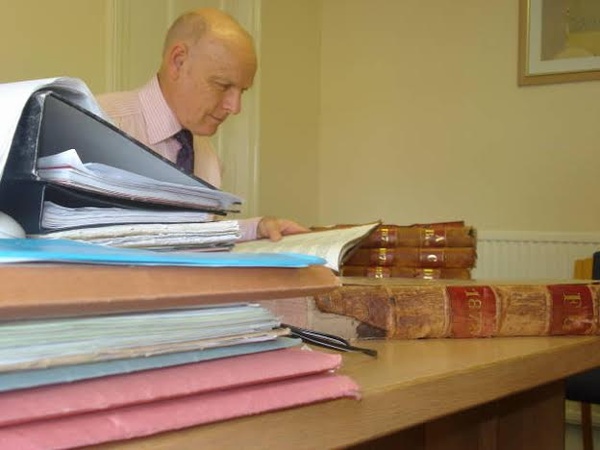
In this article, first published in the Probate Yearbook 2010, Peter Turvey, managing director of Anglia Research, provides pointers to selecting and instructing a probate genealogy company.
For those responsible for the administration of estates, experienced probate research firms such as Anglia Research can play an indisputable and invaluable role in helping to resolve complex cases. But, because probate genealogical investigative work is so specialised, it is important that lawyers – and those for whom they act – have a way of assessing the proposed investigator’s competence and the suitability of the service which is being offered to help resolve the particular problem on the practitioner’s desk. Like other fields of private investigation, the fall-out from a genealogical inquiry going wrong can be hugely damaging.
So what should the busy practitioner look for? What should he or she beware of, and what questions need to be asked?
What is the firm’s track record?
Put simply, how long has the company been in business? How many cases has it successfully resolved? The BBC’s popular Heir Hunters series shines a spotlight on what was, hitherto, a relatively unknown arena, and has inadvertently encouraged the entry of new and inexperienced players. As a starting point, therefore, it is vital to check the firm’s track record, its accreditations, and its professional membership of respected organisations that genuinely test and vet applicants, such as AGRA (the Association of Genealogists and Researchers in Archives). Look out, too, for ISO 9001 certification as an indication that quality management systems are in place.
Expertise and in-house resources
Consider whether the firm has a comprehensive foundation of internal research resources, and that it is not simply proposing to use those available on the internet. What does it have that sets it apart from other firms? Anglia Research’s unrivalled range of resources, for example, includes a traditional 8,000 volume in-house library supplemented by a series of proprietary databases which have been developed and refined over recent years to complement traditional genealogical techniques. Anglia Research also offers access to a specialist in-house legal team which is able to advise and assist the busy practitioner in resolving some of the more difficult issues that can arise in the administration of problem estates.
Indemnity insurance
Ask whether the firm carries professional indemnity insurance in respect to its activities, and enquire about the level of cover per case. Is the firm able to arrange a policy of missing beneficiary indemnity insurance for an estate, where such cover is recommended? Is it authorised by the FSA [now the Financial Conduct Authority] to provide that facility? If it is, this provides a further layer of credibility and assurance.
Does the firm offer a variety of costing options?
As with most fields of business, there is no ‘one-size fits all’ solution, and practitioners are best advised to be wary of firms who suggest that there is. A good firm of probate genealogists such as Anglia Research will be able to offer a choice of fee options to enable the practitioner to assess, with his or her client, the most appropriate way forward in relation to the particular problem with which the estate is faced.
Broadly speaking there are two ways in which a probate genealogist can be commissioned: the ‘time-spent’, or hourly fee basis, with which legal practitioners will be familiar, and the ‘finder’s fee’ (or contingency fee) basis. Anglia Research can be commissioned on either basis. This provides personal representatives and their legal advisers with both choice and flexibility in terms of advancing the necessary research.
The time-charge basis will normally take the form of the genealogist billing the estate at an hourly rate, with the cost of disbursements added to the total. It might be subject to an overall cost reserve, or budget, set by the practitioner, to be reviewed as the research reaches milestone stages. This particular costing option is held out by at least one leading firm of probate genealogists (which, coincidentally, offers its service solely on that basis) as being the only acceptable way forward for personal representatives. But is it?
As an alternative, personal representatives and/or their legal representatives can ask Anglia Research to proceed on a finder’s fee, or contingency, basis. Where this happens, the agent seeks to agree a fee directly with each beneficiary identified and located, expressed as a percentage, to be deducted from his or her net entitlement, but only when the estate is finally distributed. The personal representatives and/or the referring solicitors will have no liability in respect of the fees paid to Anglia Research and there is thus no danger of estate funds being unnecessarily depleted in a fruitless or seemingly never-ending search.
Perhaps the chief benefit of this method is that the agent’s reward is linked with completion, thus commercial reality guarantees prompt and accurate results. If there is a concern to ensure fairness, personal representatives and their solicitors can – as a term of the referral – set a limit on the percentages involved.
To facilitate complete transparency when communicating with entitled relatives, Anglia Research will always work closely with personal representatives and their legal advisers. This helps to avoid problems and enables heirs to be told, for example, the approximate net sum they are likely to receive (where this is possible) so they can see exactly how much the contingency fee is likely to be.
The contingency fee option can be used even in the case of low-value estates, or when the value of the likely inheritance is unknown at the point of contacting beneficiaries. In any such case, a percentage based system ensures that the fee will always be proportional and, should it ultimately transpire that an estate is insolvent, the beneficiary will have no liability, which provides reassurance and an effective safeguard.
By contrast, unless the genealogist working on an hourly-rate offers to refund the fee if no one is located, the research work undertaken has to be paid for by the estate irrespective of results; in effect, the estate carries the risk of paying for work which does not yield results.
Where personal representatives have reservations as to the suitability of both the time charge and contingency fee method in a particular case, Anglia Research is often able to offer further flexibility in terms of a ‘fixed fee’ option for the estate. This operates, in effect, as a variation on the time-charge method, placing a ceiling on the total bill.
The time-charge and fixed fee methods of instruction will normally constitute feasible options only where a grant of probate, or letters of administration, is in place. The contingency fee option is possible in that situation too, but is ideally suited to a situation where there is no grant or letters of administration, i.e. where no one is able to authorise estate expenditure in respect of research work.
The bottom line is that no particular fee option is necessarily ‘better’ than any other when it comes to instructing the probate genealogist. Whilst wishing to avoid the inevitable lawyers’ cliché, the reality is that ‘it all depends upon the circumstances of the particular case’. Suffice to say that, to avoid placing the estate in a straight jacket, the selected genealogist should be flexible enough to offer the practitioner a range of different costing options, together with an illustration of the effect of each of those options on the estate, thereby enabling the client and the practitioner to make an informed choice.
Key points for avoiding trouble
- Approach several firms of reputable probate genealogists at the earliest opportunity, not simply to source competitive quotations but, equally importantly, to seek advice and suggestions as to the best way forward for the estate. A good firm of genealogists will be keen to provide this type of help prior to being formally instructed.
- Ask for a detailed assessment of the case – which should be provided on a no-obligation basis – setting out the prospects of success, the anticipated difficulties, and the implications for the estate of the various costing options which ought to be available.
- Once the initial assessment is to hand, the practitioner will be in a position to discuss the genealogist’s advice with the personal representative(s) on the basis of a range of options and possible ways forward, each of which can be fully and properly evaluated.
It should not be forgotten that it is the duty of the personal representative(s) to preserve and protect the assets of the estate. The points highlighted in this article are important because any suggestion of inappropriate, unnecessary or unreasonable estate expenditure may lead to allegations by the beneficiaries of maladministration (devastavit) in an increasingly litigious environment.
A comprehensive exploration of the relevant estate problems with the genealogist before formal instructions are issued, coupled with careful consideration of the most appropriate fee option for the particular situation in which the estate finds itself, should go a long way towards ensuring that the personal representatives are fully and properly advised so that any future allegations of maladministration can be robustly defended.
2025 Anglia Research Services All Rights Reserved.
Anglia Research and Anglia Research Services are trading names of Anglia Research Services Limited, a company registered in England and Wales: no. 05405509
Marketing by Unity Online

